top of page

About
Nestled in the Upper Shenandoah Valley of Virginia, the 1,300 acres of the original farm was granted to William Carter sometime in the early 1820s. Mr. Carter oversaw the construction of a beautiful Greek revival brick farmhouse and numerous outbuilding of what would soon become a working farm of numerous industries: fleece, meat and other agriculture. Carter's farm remained in operation into the early 20th century.
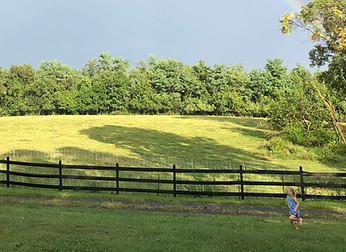
What was 1,300 acres is today just 53 acres of farmable land (and approximately half of that needs significant improvement). In the spirit of farmers past we a looking to make the most of this land by having many different types of livestock and employing the age-old principles of silvopasturing and managed, rotational grazing - everything old is new again! Carefully managed grazing of livestock allows small farms to support a larger number of animals while improving the land overall.
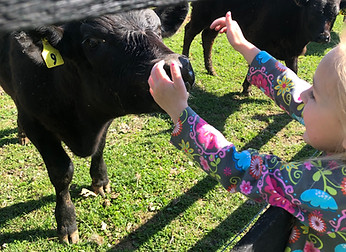
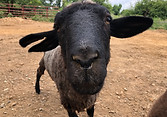
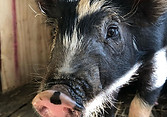
We Have Big Plans
and even BIGGER DREAMS, for this wonderful old farm that we purchased in 2019
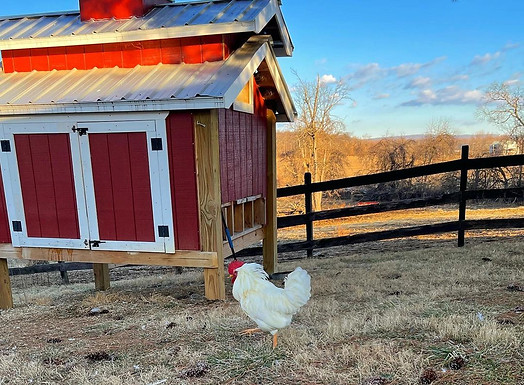
Initially we planned to operate a fleece farm only with numerous breeds and types of fleece producing animals; we soon learned that our small farm could not survive on fleece alone. So we made the decision to welcome many different types of animals to our little farm. Further, as we researched which animals to purchase we discovered The Livestock Conservancy and American Heritage Breeds. The Livestock Conservancy focuses on "protecting America's endangered livestock and poultry breeds from extinction". American Heritage Breeds, a program administered by The Livestock Conservancy, are "traditional livestock breeds that were raised by our forefathers...breeds of a by-gone era...before industrial farming became a mainstream practice."
These traditional, historic breeds, some near extinction, retain essential attributes - sometimes no longer found in today's industrial breeds. Attributes such as: foraging abilities (eating naturally as nature intended - not solely consuming processed, bulk feed), natural longevity, fertility and strong maternal instincts, and finally a natural resistance to parasites and disease (no unnecessary/over used medications required).



The historic breeds of livestock that we have chosen for our farm are the Hog Island sheep, Berkshire pigs, American Milking Devons and Nigerian Dwarf goats. All of these animals were carefully selected for our farm for the desirable attributes noted above and also for the very high quality of the farm products they produce. For example, compared to grass fed/grass finished Angus beef, grass fed/grass finished Devons have higher levels of Omega-3 fatty acids, optimal Omega-6 to Omega-3 ratios (both are essential fatty acids), elevated levels of Conjugated Linoleic Acid (an important antioxidant), more Calcium, Magnesium and Potassium, higher vitamin B content (specifically Thiamine and Riboflavin), higher beta-carotene, more vitamin E, plus numerous other health benefits. (from paleovalley.com)
bottom of page
